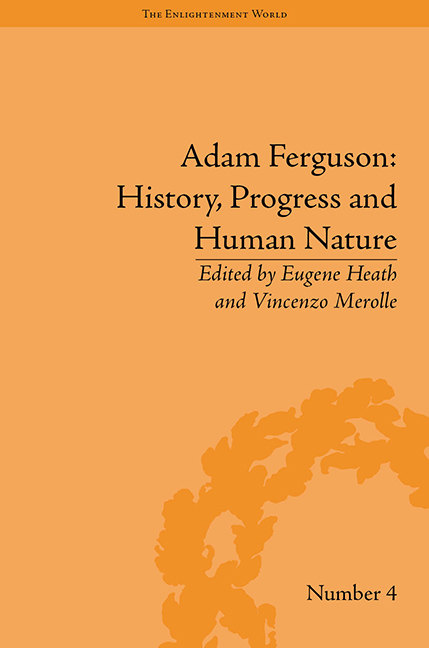Introduction
Summary
The writings of Adam Ferguson (1723–1816) offer insights into history, society and politics, challenging us to reconsider our conceptions of human nature and to reflect more deeply than we otherwise might on the moral demands of modernity. Renowned for his masterwork, An Essay on the History of Civil Society, Ferguson is also the author of political pamphlets, treatises of moral and political theory, a history of the Roman Republic and, late in life, numerous unfinished essays. Influenced by the Stoics and by Montesquieu, among others, he was in steady engagement with (and was sometimes critical of) contemporaries such as David Hume, Adam Smith and Thomas Reid. Not a formulaic thinker, Ferguson seeks to defend and articulate the institutions of liberty, while nonetheless reminding us of the call to lead good, rather than merely pleasurable, lives.
Ferguson's works, spanning several decades, exhibit a general consistency of outlook. He rejects the claims and assumptions of social contract theory and argues instead for man's immersion in history. He accepts our natural sociality but recognizes that we are also prone to conflict and opposition (and that these qualities help ensure progress). Though he embraces ideas of liberalism, he nonetheless worries over some of its moral consequences. He adheres to Stoic and teleological perspectives on human nature and moral goodness, and he espouses a theory of objective moral judgement that also grants a place for ethical sentiment. And though he suggests that the institutions and patterns of society may emerge in an unintended fashion, he defends vigorous political participation and moral leadership.
Despite Ferguson's sometimes difficult writing style, its content conveys a sense of ease and congeniality, perhaps because his originality has the familiarity of genuine insight. For example, he describes us as animal and rational, ambitious and indolent, competitive and social; we are prone to habit yet obliged to maintain moral vigour. Thus does Ferguson – no reductionist he – recall the complexity of human nature, how it manifests countervailing tendencies.
- Type
- Chapter
- Information
- Adam FergusonHistory, Progress and Human Nature, pp. 1 - 6Publisher: Pickering & ChattoFirst published in: 2014

